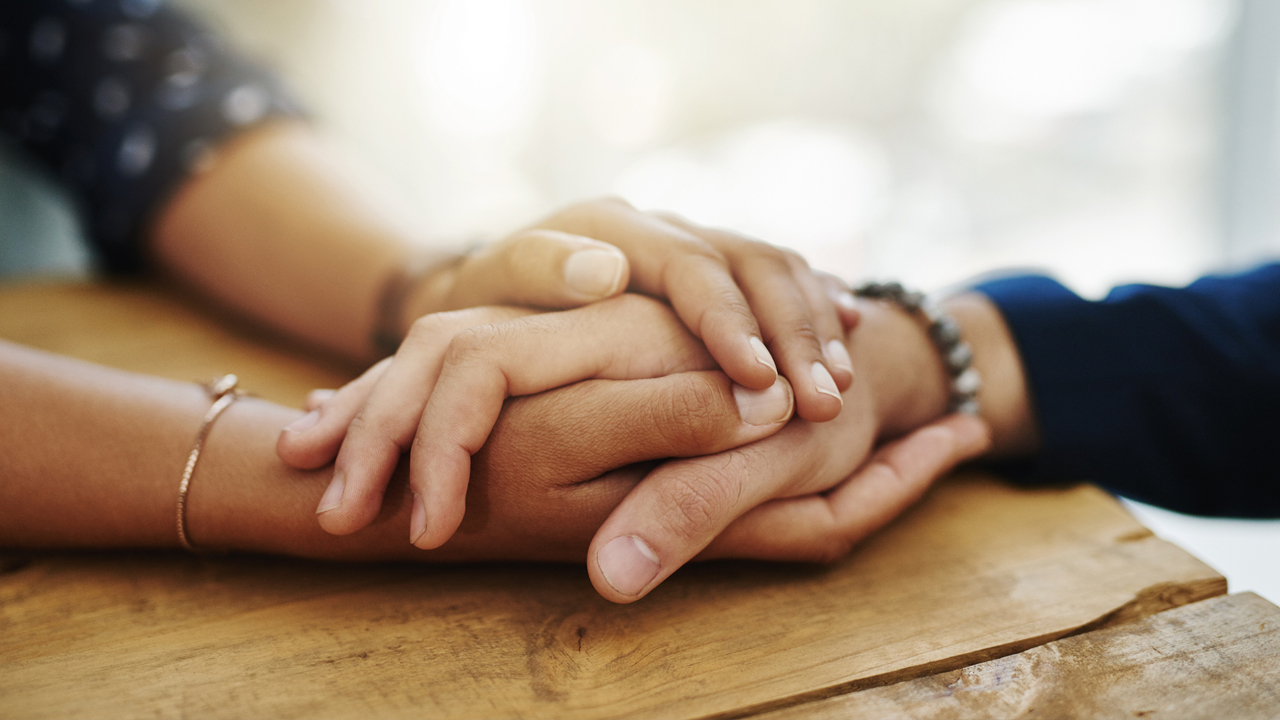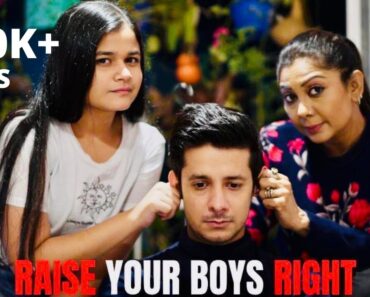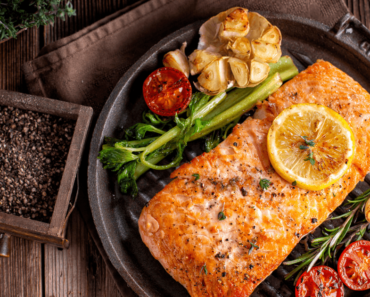It started around age 13, a physical pain that just wouldn’t go away. It was hard to pinpoint, somewhere deep in my core. Some days it subsided, then for no reason at all, I’d be in agony again. I experienced extreme fatigue, bloating, vomiting and fainting spells. And I also dealt with the depression, frustration and fear that often accompany chronic pain. Little did I know, my mystery illness would strip me of something invaluable and irreplaceable.
It took nearly three decades, but I finally received diagnoses that seem to fit—endometriosis, polycystic ovary syndrome (PCOS), pudendal nerve entrapment and suspected Hashimoto’s disease. These intimidating terms offered explanations and treatments, but no cure. And it was during one of what felt like hundreds of appointments that a specialist gently explained that due to the variety and severity of my symptoms, it was highly unlikely that I would ever be able to get pregnant.
The grief settled in like concrete. I mostly blamed myself. Maybe, I thought, if I’d tried to have kids when I was younger, I would have had a shot; maybe if I’d fought harder for a diagnosis, I could have changed the outcome. My mourning confused me because I’d never been one-hundred-percent sure I even wanted kids. I wasn’t sure my grief even counted.
Regardless, it was certainly there. I was angry one moment, deeply depressed the next, anxious and panicky the next. It manifested physically in a number of ways: back pain, weight gain and digestive issues. I had trouble sleeping but would spend hours hiding in my bed. I would stifle my feelings throughout the work day and then randomly burst into tears the moment I returned home.
I tried confiding in a close friend, telling her about my struggle with chronic pain, my diagnoses and the resulting infertility. It should have felt like a massive, life-changing moment, but she didn’t seem to sense the gravity of it. She was supportive and caring and didn’t say anything offensive or hurtful but she just didn’t get it. I didn’t know how to have the conversation, and my friend clearly didn’t know how to be on the receiving end.
I’ve since learned that infertility falls into a category known as “disenfranchised grief” because people are often overlooked, misunderstood or dismissed. It’s a common gap—one that I’m now working hard to bridge.
Shortly after finding out I would likely never have kids, I was offered a job at a fertility clinic. It might seem like a strange move, but I figured working at the clinic might offer some insight as to what had happened to my own body.
I observed a myriad of fertility experiences. Some people had healthy pregnancies. Some got pregnant but suffered miscarriages. Some were on round three, four, or five of in vitro fertilization (IVF). Some had stable, loving relationships. Some were going at it alone. Negative pregnancy tests. Ultrasounds with sad results. Surgical procedures to end pregnancies. These stories were all different, but at their core was a feeling I could relate to—grief.
While the clinic offered medical support, they weren’t set up to offer emotional support. Many people were going through difficult and compounded experiences; they would often receive the worst news of their lives and be sent home to navigate the emotional fallout on their own.
I started to research infertility support and found that while there are resources available, they can be difficult to navigate. I eventually came across a phrase I’d never heard before: death doula. According to the End-of-Life Doula Association of Canada, a death doula is someone who supports individuals, caregivers and their loved ones in a non-medical, holistic capacity surrounding death and dying. I was interested to learn that some death doulas focus on infertility because so many times the processes don’t result in a new life but in the loss of a pregnancy, a child, a dream for the future.

Photo: iStock/PeopleImages
I had found my calling. Now I work as a death doula, specialising in infertility, pregnancy loss and caregiver support. My goal is to find ways to help people externalize their emotions in ways that feel manageable and soothing, to offer facets of support that are effective and meaningful, and to discover methods that anchor people and help them to feel safe during tumultuous times.
Every person is unique, and so every session is highly personalized. Maybe my client wants to spend time with someone who understands what they’ve been through, or maybe they want help communicating their needs to loved ones. Perhaps they would like to create a ceremony or ritual to honour a loss, a loved-one, or their own shifting identity. Maybe they feel trapped in their body and would like to explore holistic treatments like bodywork, Reiki or a compassionate practice known as “grief movement.”
A lot of the experience surrounding infertility ties into identity: Creating a child requires a complete conceptualization of who we are, and then, if we find out we can’t or won’t have a child, we have to reimagine ourselves. During fertility treatments, this process—the hope, the reimagining, the dreaming, the devastation, the disappointment—sometimes happens over and over and over again. It’s no wonder people can lose their sense of self along the way. Although each person’s experience is unique, I deeply empathized with what they were going through because I was on my own painful path.
One of my first clients was a woman named Florence*. She came to me after her initial dating ultrasound found that her baby did not have a heartbeat. She’d been given three options: wait to miscarry naturally, use medication to help the process or have a surgical intervention. Florence ultimately decided on surgery but she didn’t know what to expect from the procedure, and the idea of her pregnancy ending in a cold, sterile environment was causing her stress and anxiety.
We talked about the procedure and then about her grief—how it felt for her and for her partner. We discussed that her grief was legitimate, significant and real, and that no two people navigating the same path will experience it in the same way. Florence was searching for emotional support, she was looking for a way to remain connected to her child in a healthy way, and she was seeking a way to say goodbye that made sense to her. She was also seeking a way to validate and memorialize her pregnancy.
Leading up to Florence’s procedure, we organized grocery and meal drop-offs, designated a person to provide updates to friends and family and communicated the types of gifts and donations the couple was comfortable receiving. I also helped Florence to change her digital settings so she wouldn’t continually be bombarded with advertisements for pregnancy and baby items. These steps allowed the couple to feel prepared for the procedure and ensured that they would be properly supported in the days and weeks to follow. We also designed a ceremony to help Florence and her partner feel connected to their child before, during and after the procedure.
Another client, Jade*, had always wanted children, but after many consultations, tests and ultrasounds, she was told she would likely never carry children. Years later, she was still struggling to work through the loss and was trying to find some meaning in it. As part of her story, she wanted to give back and support other people going through infertility. Jade was a writer so I introduced her to the idea of legacy projects. Legacy projects can take many forms—writing a memoir, planting a tree or memorial garden or creating a memory book, to name a few. Jade now volunteers to help others work through their grief in a meaningful and healthy way.
Certainly one of the more emotional experiences I’ve had as a death doula was working with a woman named Loretta*. Loretta and her partner had experienced a stillbirth months before and had a strong support system in place but they were struggling to help their six- and four-year-old sons comprehend what had happened. After several conversations, it became clear that the boys needed a way to say goodbye to their baby sister that was age-appropriate and centred around their needs.
The first step was giving the baby a name. It was something that had initially felt confusing and overwhelming, but naming her as a family felt right. The boys decided to call their sister Brooke* and it was perfect. From there, we planned a private ceremony in a forest near their home. We helped the boys build birchbark boats that they filled with precious items they thought their sister would like—flowers, pebbles and moss. We walked to a small stream, and the boys released their boats into the water while singing “You Are my Sunshine” to Baby Brooke.
Grief and chronic pain remain a part of my daily life but I’ve learned how to manage them both. I’ve made peace with my grief, and I accept it as part of my identity. I still long for what might have been but I know how to engage with those complicated emotions in a healthy way. We can help each other by normalizing important conversations surrounding grief, loss, death, and dying, and I now have the vocabulary to teach others how to engage with such heavy topics and emotions.
And here’s what I’ve come to learn about grief: It doesn’t really ever go away. People may choose to fight it, deny it, or run from it, but in the end, understanding and embracing grief is the best way forward. At times it may feel too heavy but we can learn how to carry it.
*Names have been changed.
Sarah Bird is a death doula and grief guide based in Toronto, Ontario. She works virtually with clients across Canada. To learn more about her work, visit sarahbird.ca

































